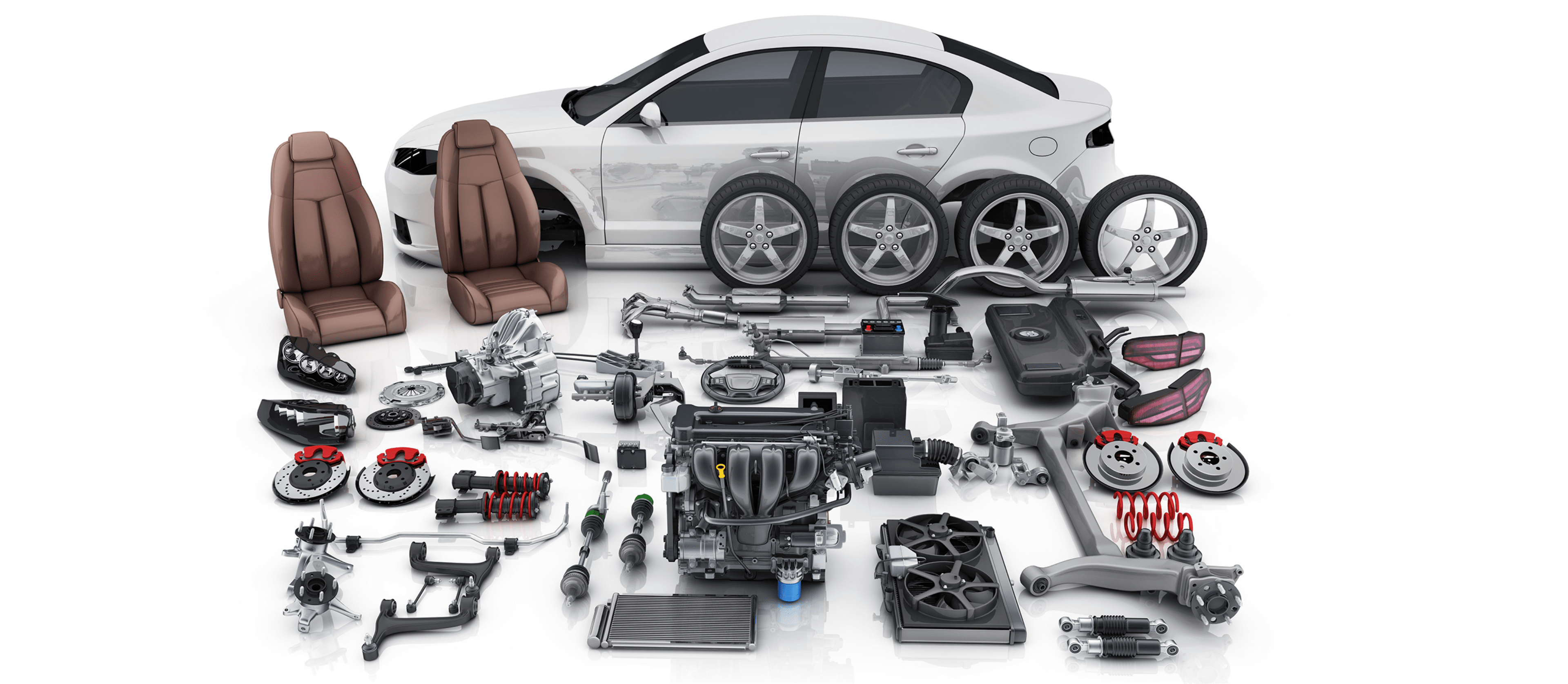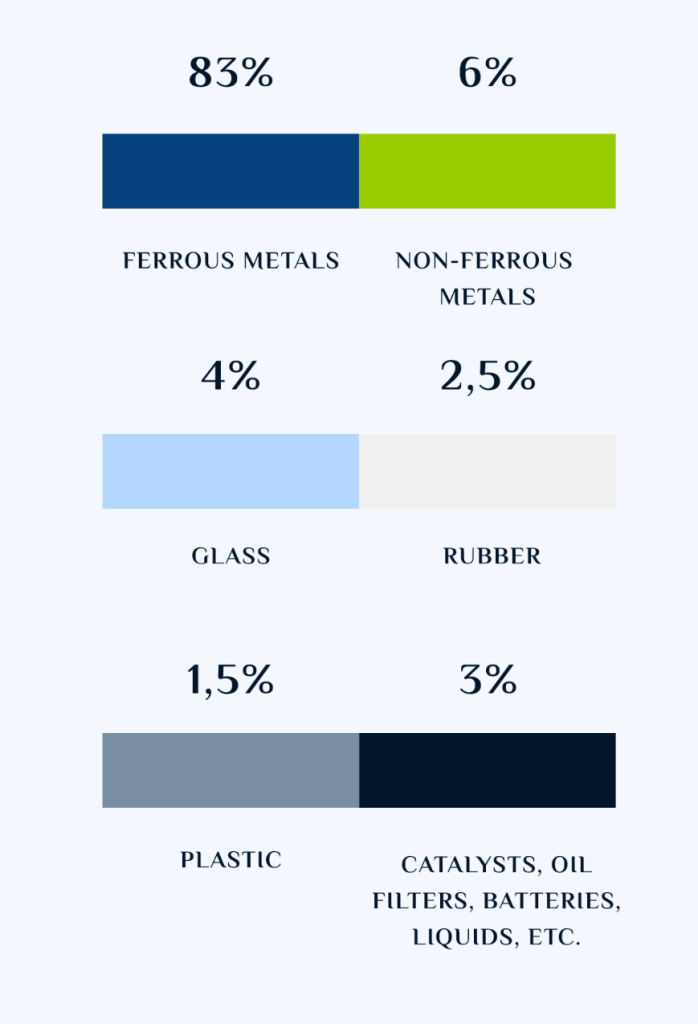End-of-life vehicles (ELVs)
Nord Holding buys end-of-life vehicles, provides the documents needed to withdraw the vehicles from the Traffic Police register, and organizes their subsequent recycling.
We buy any type of vehicle: motorcycles, tractors, trailers, buses, cars and trucks, because we believe that all ELVs, even accident damaged ones, have a positive economic value.
Terms and conditions of buying ELVs
!
ATTENTION!
ELVs whose vehicle identification number is forged, deleted or damaged will not be accepted.
ELVs that have not been imported in accordance with the law
or have been declared stolen shall not be bought until the vehicle ownership has been established.
The price is calculated based on the vehicle’s weight measured
and the market prices of ferrous metal scrap and non-ferrous metal scrap for the period.
Buying process
The handover of ELVs must take place only at Authorized Treatment (AT) sites holding a permit from the respective regional environmental inspectorate to accept waste classified under code 16 01 04 * designated as “End-of-life vehicles”, or under code 16 01 06 designated as “End-of-life vehicles, containing neither liquids nor other hazardous components” as per Ordinance № 2 of 2014 on the classification of waste.
The buying process goes through the following steps:
What may happen if the above steps are not taken?
If the vehicle is inoperable or appears to be in a disused state, but the owner does not want to part with it or has been postponing this decision, it may be treated as an abandoned vehicle subject to removal by the municipality.
This can happen if the car has been parked on state or municipal land,
for example in front of an apartment building.
Municipalities apply the following procedure with regard to vehicles abandoned on public land: the mayor appoints a commission
to notify owners of their obligation to move the respective vehicles within a given period of time by placing warning stickers on them.
If the owner does not take action, they are made subject to a fine, and the vehicle is towed to an ELV
storage site. The owner may reclaim it within a certain period of time by paying a release fee.
If no action is taken prior to the expiration of the new period, the ELV is dismantled.
!
Important information
An owner of an end-of-life vehicle is a potential polluter unless they hand the vehicle over
to an authorized ELV collection and dismantling site.
If they fail to do so, the “polluter pays” principle applies, which stipulates that those who pollute the environment by generating
or contributing to the generation of hazardous waste, i.e. the holders of said waste, must cover the full costs of waste treatment and
management so as to ensure a high level of protection of the environment and human health.
Activities following the handover of ELVs

Bought ELVs are dismantled in dismantling centers which
have the necessary equipment and permits.
The dismantling process is performed in accordance with methodology approved by the Minister of Environment and Waters, which ensures safe operation, non-pollution of the environment, and achieving the highest possible recycling rate.
The disassembling process follows the steps outlined below:
The ELV consists of about:


Dismantling performed with precision and following clearly outlined steps allows for the reuse and recycling of the specific components to the greatest possible extent.
The current recycling rate of the various types of vehicles, which is calculated against the respective ELV weight, is between 86 and 96%, while their recovery rate is 96%.
The effective and sustainable separate collection and treatment of ELVs as well as the recycling and / or recovery of ELV waste is essential so that Bulgaria can minimize the impact of waste on the environment and improve nature conservation, contributing to a better quality of life.
Sell your disused car to us
GET THE BEST PRICE FROM BGN 300 TO BGN 1300 PER CAR. WE PAY CASH ON THE SPOT.
OUR SERVICE COVERS THE CITY OF SOFIA.
Upon accepting an ELV, we provide a certificate of deregistration to be presented at the Traffic Police.









